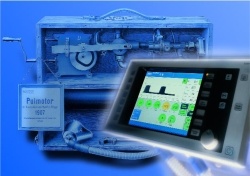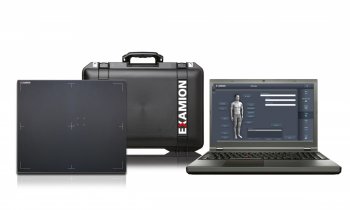Dräger's special anniversary year 2007
Dräger looks up to 100 years of innovation in ventilation technology worldwide. In 1907 Johann Heinrich Dräger invented the Pulmotor as the first short-term respirator and founded the first Draeger company in the United States.

100 years ago traditional methods of resuscitation offered a rather bad outcome. Company founder Johann Heinrich Dräger saw the need to construct the first automatic resuscitation machine for artificial respiration: the pulmotor. Dräger’s pulmotor was patented in october 1907 and became a standard piece of equipment used by german rescue services.
The simple and reliable device significantly increased the number of successful reanimation and also succeeded in the United States, where the first Dräger company was founded in New York City in 1907, too.
In the US mainly fire departments and rescue teams of mining companies bought Dräger’s breathing apparatus, and by March 1, 1917, over 1,000 officially attested resuscitations were done with the pulmotor.
Even Dräger’s current emergency and long-term ventilators of the Evita or Oxylog family, although equipped with state of the art techniques, are based on the technical specifications of the Pulmotor.
27.06.2007






